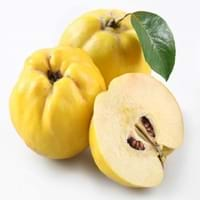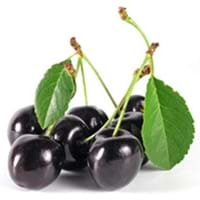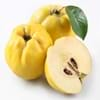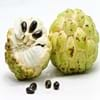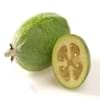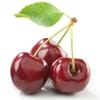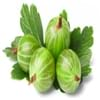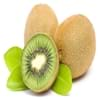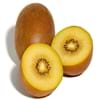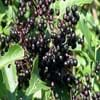Health Benefits
Cancer prevention, Cures gastro-intestinal troubles, Reduces nervous tension, Ulcer prevention
Anti-aging benefits, Anti-inflammatory properties, Arthritis treatment, Cancer prevention, Helps body to rest and sleep, Lower blood pressure, Prevents diabetes, Prevents strokes, Reduces risk of heart disease
General Benefits
Anti oxidant properties, Anti-inflammatory properties, Boosts immune system, Controls blood pressure, Digestive aid, Eye care, Helps in weight loss, Improves blood circulation, Maintains healthy cholesterol level
Fights against infections, Fights Tooth Decay, Helps in weight loss, Relieves pain, Treatment of migraine
Skin Benefits
Anti-aging benefits, Reduces wrinkles
Anti-aging benefits, Fairness, Hydrates skin, Prevents skin cancer, Skin repair, Treatment of acne
Hair Benefits
Regulates hair growth
Cure for hair loss, Increasing hair volume, Prevents hair loss, Strengthening of hair
Allergy Symptoms
NA
Abdominal cramps, Anaphylaxis, Diarrhea, Hoarseness, Itchy eyes, Nausea, Pollen allergies, Sore eyes, Vomiting, Watery eyes, Wheezing
Side Effects
Allergic reaction
High doses of black cherry bark can be poisonous and even fatal.
Lactating Women
Yes
Not Available
Best Time to Eat
As a snack in the late afternoon, Don't consume at night and before bed, Eat the fresh ones, avoid mixing with any other foods, don't eat after meal., Morning time (before lunch)
Best if taken as a breakfast (or empty stomach), Don't eat after meal, Morning time (before lunch)
Vitamin B1 (Thiamin)
Not Available
Vitamin B5 (Pantothenic Acid)
Vitamin B6 (Pyridoxin)
Not Available
Vitamin B9 (Folic acid)
Not Available
Vitamin C (Ascorbic Acid)
Not Available
Phytosterol
Not Available
Calories in Fresh Fruit with Peel
Calories in Fresh Fruit without Peel
Not Available
Not Available
Calories in Frozen Form
Not Available
Not Available
Calories in Dried Form
Not Available
Calories in Canned Form
Not Available
Not Available
Calories in Juice
Not Available
Calories in Jam
Not Available
Calories in Pie
Not Available
Varieties
Meech’s Prolific, Lusitanica, Champion and Vranja AGM
alabamensis, capuli , eximia and hirsuta
Color
Green, Yellow
Black
Inside Color
White
Maroon
Origin
Iran, South-West Asia, Turkey
North America
Soil Type
Loam, Well-drained
Not Available
Climatic Conditions
Warm
Cold
Facts about
- Due to its strong & fruity aroma, brides consumed quince to ensure "perfumed lips".
- It is also called as ‘Pear of Cydonia’, being native to Caucasus and Iran.
- They call it as the ‘golden apple’ of Greek Mythology.
- Black cherry is deciduous tree that belongs to the family of roses.
- Some foods made from Black Cherry fruit include jelly and wine.
- Inner bark of black cherry is used in the manufacture of cough syrup.
Top Producer
Turkey
Turkey
Other Countries
Algeria, Argentina, Azerbaijan, China, Iran, Morocco, Serbia, Spain, Uzbekistan
Austria, Bulgaria, Chile, China, France, Greece, Iran, Italy, Macedonia, Poland, Romania, Russia, Serbia, Spain, Syria, Ukraine, United States of America, Uzbekistan
Top Importer
United States of America
France
Top Exporter
Argentina
Turkey
Botanical Name
Cydonia oblonga
Prunus Serotina
Synonym
C. vulgaris
wild black cherry, rum cherry and mountain black cherry
Subkingdom
Tracheobionta
Tracheobionta
Division
Magnoliophyta
Magnoliophyta
Class
Magnoliopsida
Magnoliopsida
Species
C. oblonga
P. serotina
Generic Group
Rose
Cherry
Compare Quince and Black cherry
It is important compare Quince and Black cherry as both the fruits have a different nutritional value. Their comparison can be done on the basis of their vitamin and mineral content, calories, benefits as well as characteristics, making it easier for us to choose the best fruit for our diet. Their general health benefits are as follows:
Quince Benefits: anti oxidant properties, anti-inflammatory properties, boosts immune system, controls blood pressure, digestive aid, eye care, helps in weight loss, improves blood circulation and maintains healthy cholesterol level.
Black cherry Benefits: fights against infections, fights tooth decay, helps in weight loss, relieves pain and treatment of migraine.
Fruits are also used as a remedy for various hair problems. The hair benefits of Quince are: regulates hair growth and hair benefits of Black cherry are: cure for hair loss, increasing hair volume, prevents hair loss and strengthening of hair. Some fruits are known to cause allergic reactions. The allergy symptoms of first fruit are: na and the symptoms of second fruit are: abdominal cramps, anaphylaxis, diarrhea, hoarseness, itchy eyes, nausea, pollen allergies, sore eyes, vomiting, watery eyes and wheezing. Get sorted Quince vs Black cherry comparison with the help of fruit comparison tool by fruitvs.com.
